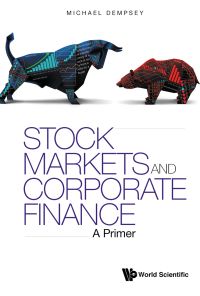Question
Before reading the WSJ article below, do you know the difference between a publicly traded company and a privately-held company? If not, first read here:
Before reading the WSJ article below, do you know the difference between a publicly traded company and a privately-held company? If not, first read here: https://www.investopedia.com/ask/answers/difference-between-publicly-and-privately-held-companies/#:~:text=In%20most%20cases%2C%20a%20private,via%20an%20initial%20public%20offering Links to an external site..
Discussion Prompt: In an effort to boost business, the London Stock Exchange is thinking about giving some private companies the ability to trade on their exchange just like publicly listed companies. Read the article here: https://www.wsj.com/articles/london-stock-exchange-proposes-special-listings-for-private-companies-11642248741?mod=mhp Links to an external site.. This WSJ article states that "Before a public trading window, the [private] company would be required to put out a cleansing statement disclosing material information, which is intended to level the playing field." Since publicly listed companies have to jump through all kinds of hoops in order to trade on an exchange, is it fair for the London Stock Exchange to give private companies the ability to trade on their exchange with a watered-down version of their exchange-listing requirements? What do you think of this model? Could it be good for financial markets?
Step by Step Solution
There are 3 Steps involved in it
Step: 1

Get Instant Access to Expert-Tailored Solutions
See step-by-step solutions with expert insights and AI powered tools for academic success
Step: 2

Step: 3

Ace Your Homework with AI
Get the answers you need in no time with our AI-driven, step-by-step assistance
Get Started


